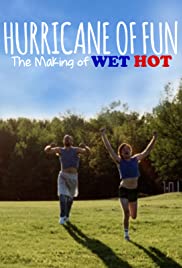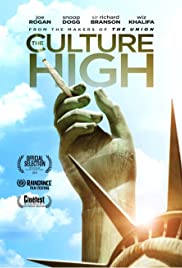
A documentary that explores how innovation can solve some of the world’s greatest problems and promote human progress. The film tracks four companies on the cutting edge of technological innovations that could help to protect the seas from pollution, solve hunger, eliminate organ transplant waitlists, and reduce atmospheric carbon emissions. The documentary also explores how, in the fast‐paced world of technological development, well‐intentioned regulations can inadvertently hamper beneficial discoveries.
You May Also Like

An inside look at Louis C.K.’s public downfall and surprising return to the stage. Featuring interviews with three women — Jen Kirkman, Abby Schachner, and Megan Koester — who spoke up about his sexual misconduct, New York Times journalists who broke the story, and fellow comedians and writers such as Michael Ian Black, Michael Schur, and Aida Rodriguez. Invites viewers to question whose stories and whose art we value, and at what cost. A New York Times production.

An immersion into the intimacy of Mikhail Gorbachev, the last leader of the USSR. The architect of perestroika and glasnost, who was praised in the West but reviled in his own country, still combative despite his advanced age, loneliness and illness, offers his personal and political testament.

Exclusive behind-the-scenes footage offers a glimpse into the comic minds behind a “Wet Hot” summer-camp cult hit featuring many future stars.

Is access to clean drinking water a basic human right, or a commodity that should be bought and sold like any other article of commerce? Stephanie Soechtig’s debut feature is an unflinching examination of the big business of bottled water. From the producers of Who Killed the Electric Car and I.O.U.S.A., this timely documentary is a behind-the-scenes look into the unregulated and unseen world of an industry that aims to privatize and sell back the one resource that ought never to become a commodity: our water. From the plastic production to the ocean in which so many of these bottles end up, this inspiring documentary trails the path of the bottled water industry and the communities which were the unwitting chips on the table. A powerful portrait of the lives affected by the bottled water industry, this revelatory film features those caught at the intersection of big business and the public’s right to water.

Not Available right now

Global, dynamic, and eye-opening, this is story of the most daring cyber heist of all time, the Bangladeshi Central Bank theft, tracing the origins of cyber-crime from basic credit card fraud to the wildly complex criminal organisations in existence today, supported by commentary and fascinating insight from highly regarded cyber security experts.

The Culture High tears into the very fibre of the modern day marijuana debate to reveal the truth behind the arguments and motives governing both those who support and oppose the existing pot laws.

Jay Mohr’s newest one hour special, and the first in over 7 years, is a hilarious set of stories of the challenges of raising two kids, keeping his family on the right path, along with his legendary impressions (Christopher Walken, Norm MacDonald, Adam Sandler and a host of others) and riotous real life Hollywood stories. As Jay says, “the stories are all true” and they’re all funny too.

Ricky Gervais dishes out controversial takes on political correctness and oversensitivity in a taboo-busting comedy special about the end of humanity. Recorded at The London Palladium.

Why are so many people wheat-intolerant or sensitive to wheat? And why is wheat linked to so many modern-day health problems, when it has been a staple of the human diet for thousands of years? In this documentary, a nutritionist interviews 14 experts, to understand how wheat has changed since it was first cultivated, how these changes could be affecting human health, and how people can break a dietary cycle that could be making them sick.

This documentary follows King Gnu frontman Daiki Tsuneta as he works with his musical collective millennium parade on their genre melding track “2992”.

What is true and what is false in the hideous stories spread about the controversial figure of the Roman emperor Gaius Julius Caesar Augustus Germanicus (12-41), nicknamed Caligula? Professor Mary Beard explains what is accurate and what is mythical in the historical accounts that portray him as an unbalanced despot. Was he a sadistic tyrant, as Roman historians have told, or perhaps the truth about him was manipulated because of political interests?